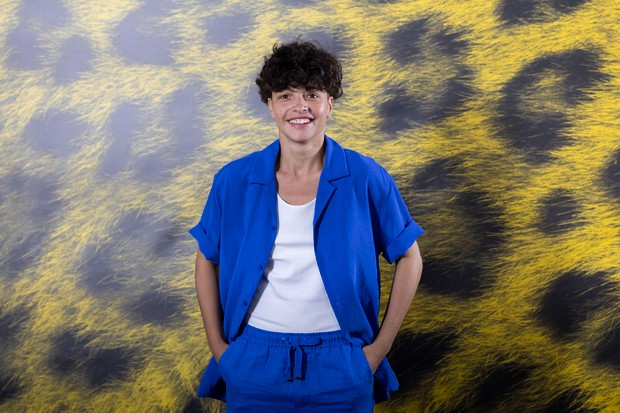Leonor Teles • Director of Baan
“This whole film is trying to portray a state of mind”
by Marta Bałaga
- With her new feature, the cinematographer-turned-director embarks on a bittersweet search for the place where one belongs

L (Carolina Miragaia) is in between places, looking for one she could finally call home; so is K (Meghna Lall). They meet, talk and quickly become close. But they are also scared of commitment, it seems, be it to cities, countries or even people. We talked to Portugal’s Leonor Teles about her Locarno competition entry Baan [+see also:
film review
trailer
interview: Leonor Teles
film profile].
Cineuropa: Being in between countries is a very specific state of mind – I assume you have experienced it yourself?
Leonor Teles: I have. When I am making a film, I have to know what I am talking about. I have to talk about things I recognise, things that are compelling to me and feel urgent. This whole definition of what “home” is and what it can be, it’s something that’s very close to me.
One feels a bit of sadness and melancholy in the film. You show someone who is so lonely.
I think it’s true of this generation – my generation. You really need to search for who you are, what you want to do and where you want to be. Sometimes, you need to go very far to realise that maybe you should actually go back. All this technology is supposed to help us connect, but often it’s all about being in the moment. You meet someone, a stranger, and you talk – not because you immediately feel close, but because you don’t want to be alone again. Accepting this loneliness can be so hard for people.
That’s what’s interesting about this budding love story: you have two people who constantly keep on moving, so how can they actually build something that will last?
If you find someone who has experienced the same feelings, you feel understood. They are moving, yes, but they also understand what it entails. There are so many people who want to run away but don’t have the courage to do so. And then there are those who can easily leave everything behind. For K, it’s just easier. It has to do with who they are, with their respective personalities. Also, another person can become your “home”, but they don’t have to be that forever. You have to accept that not everything in life is going to be the way you want. You have to deal with your frustrations and hope for the best, basically.
As a cinematographer who has now also decided to direct, did you find it hard?
I never intended to direct films. It just happened, in a way. I have always liked photography; I was fascinated by images and I want to keep doing it. It’s still my main job. But there are some things that made me feel very restless, and I needed to talk about them. I needed to make this film. It was a difficult process because directing is so hard. It’s such a big responsibility, making sure that all of these things you are putting together actually work. Also, I couldn’t just stop being a cinematographer, even when I was directing. I love the camera way too much.
It's funny you use this word “restless” because there are scenes in the film when your camera is restless as well.
This whole film is trying to portray a state of mind. L is always inside of her head, so how can I show that? She is not fully in the moment, in the present, because she is thinking about something else or dreaming about something she wants. I needed to make sure that you would still be with her, experiencing what she’s feeling. Baan is more about emotions than typical storytelling.
Were you afraid to talk about race in the film? Unlike K, your protagonist is not experiencing these issues herself.
When you meet someone new, they can lead you into a new world. They can show you something you haven’t noticed before. And then, hopefully, it’s hard to go back. At least it was for me. L starts to see a different side to this city, and it’s so important to open your eyes like that. Here, in Europe, we are very concerned about what’s happening – in Europe. We tend to forget about the rest of the world, I think. But there are so many people who are struggling. We still have all these rights, and we can speak freely – for others, it’s just not the case. It’s important to find space to talk about other battles.
Did you enjoy reading this article? Please subscribe to our newsletter to receive more stories like this directly in your inbox.















